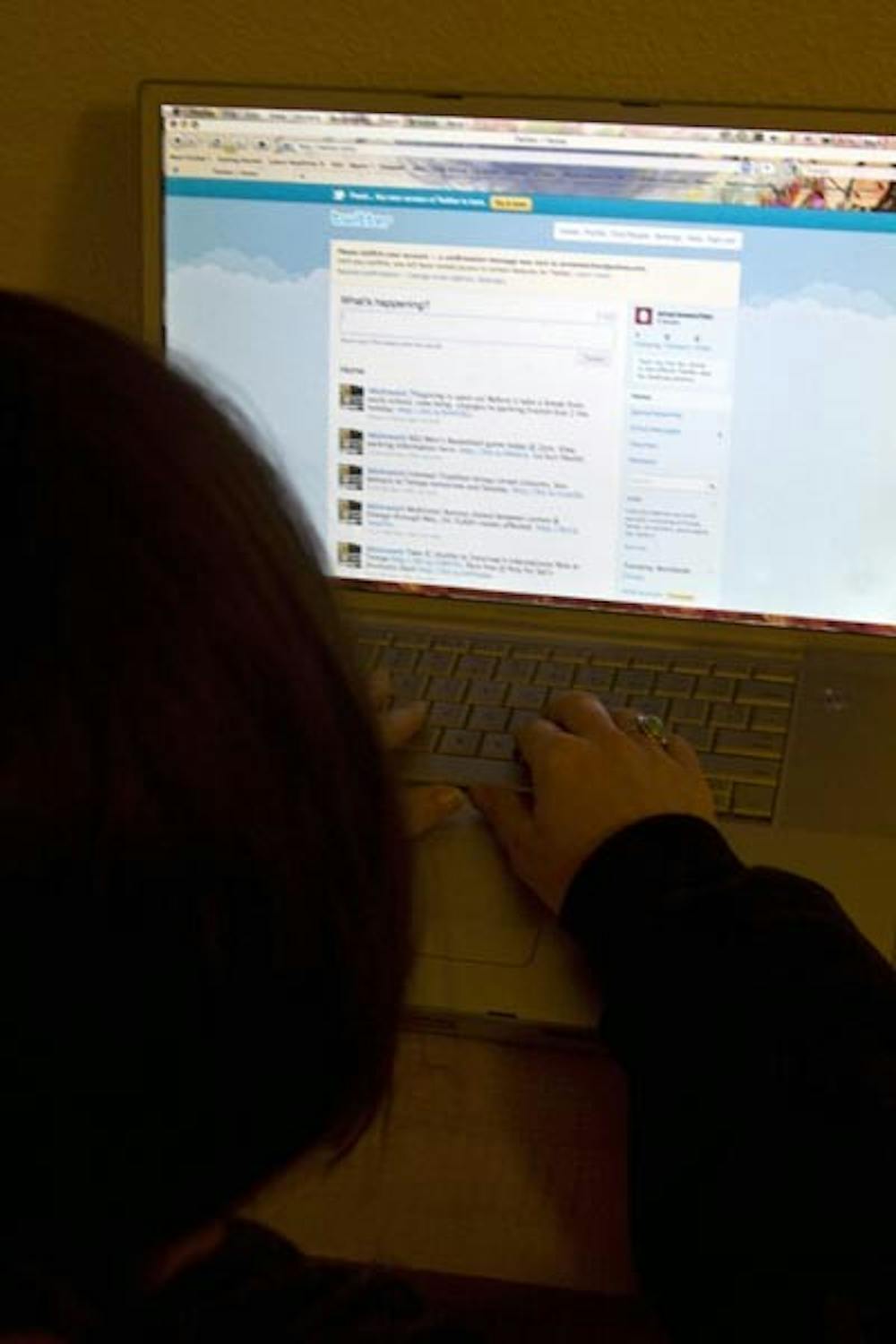The few clicks it takes to enter the world of social networking seems to be a very distracting temptation while in class, but one study indicates that those few clicks could boost a student’s GPA.
According to a study published in the Journal of Computer Assisted Learning in November 2010, the social networking website Twitter can be used as an educational tool to engage students in material and make faculty more active in the learning process.
The semester-long study at an unnamed Midwest university involved 125 pre-health majors, 70 of which were told to use Twitter while completing class assignments, while the 55 students in the control group had to complete the same assignments with the help of a traditional web-based program for discussion, much like ASU’s Blackboard.
At the end of the one-credit course, the experimental tweeting group of students had a “significantly greater increase in engagement than the control group,” according to the study. These students also had a slightly higher GPA than their non-Tweeting counterparts.
While the logic behind the study is that Twitter allows students to have more convenient interactions with their peers and instructors, and thus students are more actively engaged, it’s not for certain that social networking outside the realm of controlled experiments can be utilized by students in a valuable way.
ASU psychology professor Craig Nagoshi believes more experimentation needs to be carried out before the lines of conclusion are drawn on the academic benefits of social networking.
“Those students who regularly use Twitter are different on several dimensions,” Nagoshi said.
Compared to popular social networking site Facebook, students who use Twitter may be more interested in spreading information, and are probably more informed, which would be associated with better grades, he said.
“The verdict on the more widely used Facebook is undoubtedly more mixed, as I’m pretty sure that the ones who use Twitter also use Facebook, but the reverse is not true,” Nagoshi said.
A study by Netherlands professor Paul Kirschner, published in the journal Computers in Human Behavior in November 2010, revealed that the use of Facebook can lower grades by as much as 20 percent.
The study involved the analysis of 219 U.S. university students and found that those who didn’t have access to Facebook had an average GPA of 3.82 while those who had Facebook access had a fairly lower average GPA of 3.06.
The students who didn’t use the site maintained that they had a greater amount of time to dedicate to studying, while three-quarters of the students doubted the use of Facebook impacted their academic performance, according to the study.
Engineering sophomore Stevie Robinson said that Facebook is advantageous to his academic performance.
“Facebook has so many communication options that I use a lot for studying with groups,” Robinson said. “The new groups even have a group chat, which makes collaboration so much easier, and that’s super important for engineering.”
Reach the reporter at: ktenagli@asu.edu





